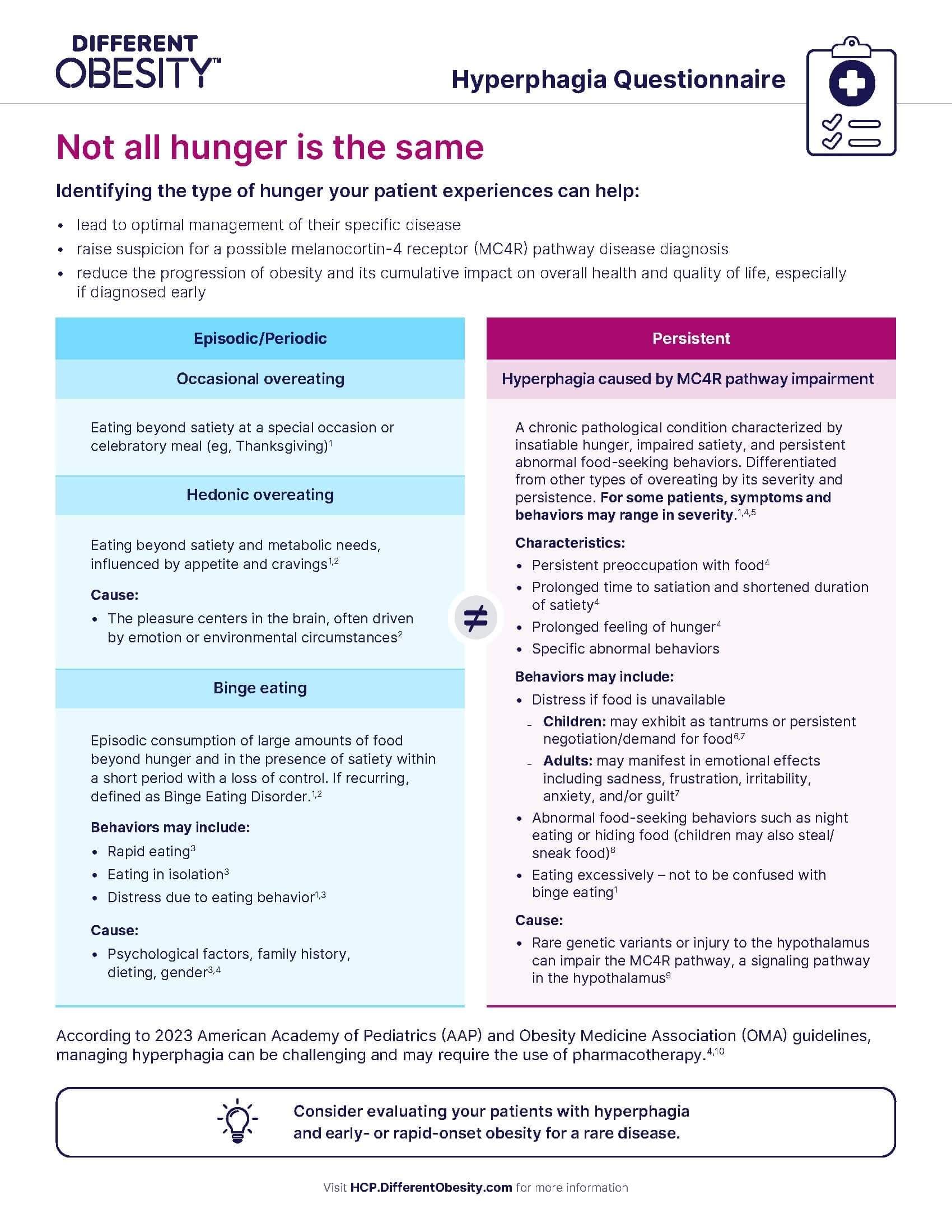Monogenic Obesity
PCSK1 deficiency

Proprotein convertase subtilisin/kexin type 1 (PCSK1) deficiency is often caused by biallelic variants in the PCSK1 gene1
Get connected. Find resources and get more information.
Signs and symptoms of PCSK1 deficiency2-8
- Hyperphagia
- Obesity
- Gastrointestinal (GI) symptoms, including postnatal diarrhea within the first weeks of life
- Metabolic acidosis
- Polydipsia/polyuria
- Some form of diabetes
- Hyperinsulinemia
- Hypoglycemia
- Hypothyroidism
- Failure to thrive in infancy
- Hypocortisolism
Two key features among a wide range of symptoms2,8:
HyperphagiaChronic pathological condition characterized by insatiable hunger, impaired satiety, and persistent abnormal food-seeking behaviors
Early-onset obesityEarly-onset, severe obesity
Downloadable
Do you suspect your patient may have PCSK1 deficiency? Use this questionnaire to identify hyperphagia in your patients with early-onset obesity.
Genetic inheritance
PCSK1 deficiency is inherited in an autosomal recessive manner.7
Individuals can have biallelic or heterozygous variants of PCSK1. Variants may be identified through genetic testing.1,5
Diagnosis
Conditions like PCSK1 deficiency may be suspected with clinical presentation, but genetic testing may confirm a diagnosis.
Genetic testing through the Uncovering Rare Obesity® program is available for eligible patients. Visit UncoveringRareObesity.com
Find out about a treatment option for obesity due to PCSK1 deficiency

Personalized one-on-one educational support* for your patients living with PCSK1 deficiency
Rhythm InTune provides educational resources, wellness tips, and connection to a community for people living with PCSK1 deficiency
Patient Education Managers are employees of Rhythm Pharmaceuticals and do not provide medical care or advice. We encourage patients to always speak to their healthcare providers regarding their medical care.
